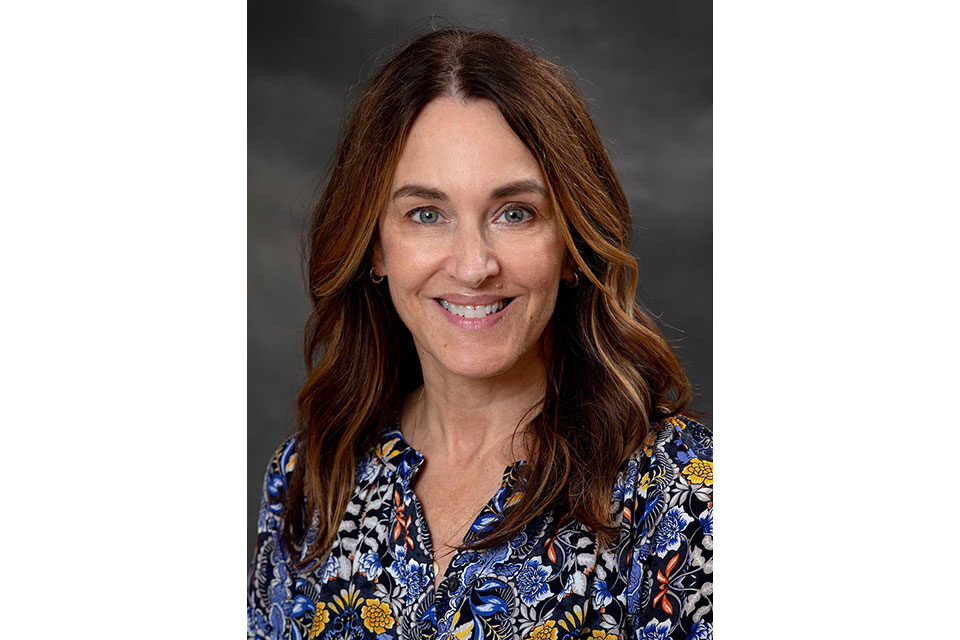Dr. Susan Meschwitz awarded grant to study women’s health, UTIs

Dr. Susan Meschwitz, associate professor and chair of the Department of Chemistry, was recently awarded a supplemental Rhode Island IDeA Network of Biomedical Research (RI-INBRE) grant on women’s health for $268,789 from the National Institute of General Medical Sciences of the National Institutes of Health. The funded research project is titled “Targeting Quiescent E. coli for Prevention of Recurrent Urinary Tract Infections.”
In the United States, there are approximately 11 million urinary tract infections (UTIs) reported each year and more than 50% of women will be diagnosed with at least one UTI. Twenty-seven percent of patients with a UTI experience a recurrence within 12 months, even after successful antibiotic treatment. Uropathogenic Escherichia coli, a leading cause of initial and recurring UTIs, are thought to survive antibiotic treatment by entering a quiescent state in the bladder, which allows them to resume growth at a later time once antibiotic treatment is halted.
With this grant, Meschwitz will conduct research that will help discover molecules that prevent uropathogenic bacteria from entering an antibiotic-tolerant, quiescent state and identify candidate molecules that may lead to new treatment approaches for recurrent UTI infections with multidrug-resistant strains.
The overarching goal of the RI-INBRE program is to increase hands-on student training and improve institutional research capacity for biomedical excellence in Rhode Island. The research funded with this grant will be carried out with undergraduate students in Meschwitz’s laboratory, and it is also in collaboration with University of Rhode Island (URI) professors Dr. Jodi Camberg, associate professor of cell and molecular biology, and Dr. David Rowley, professor in URI’s College of Pharmacy.
“I am very excited about this grant, because it will allow me to provide several students with hands-on training in the laboratory during both the academic year and during our 10-week summer research program,” Meschwitz said. “Through this enhanced learning opportunity, the students acquire the critical thinking and laboratory skills necessary for success in research and in the field. In addition, our students will have the opportunity to interact with graduate students and participate in monthly research group meetings at URI.”

